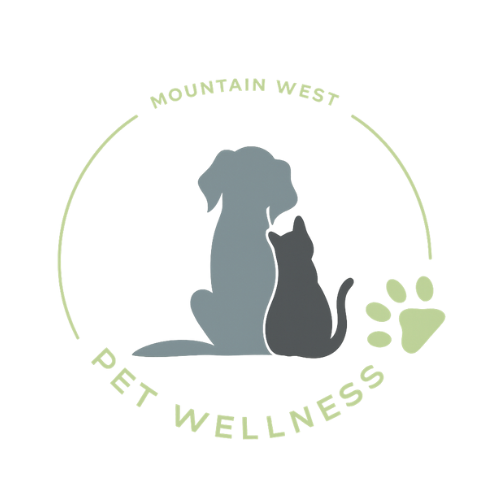🐾 Grain-Free Pet Food: Why Vets Panicked—And Why the Science Doesn’t Back the Hysteria
In 2018, the pet world was rocked when the FDA released a warning suggesting a potential link between grain-free dog food and a heart condition called Dilated Cardiomyopathy (DCM). Veterinarians began sounding the alarm, pet food companies scrambled to reassure customers, and pet parents were left wondering if they had unintentionally harmed their dogs by choosing grain-free diets.
But here's the thing: the panic was not based on solid science. Years later, with more research under our belts, we now know this grain-free “crisis” was more correlation than causation—and it's time to set the record straight.
📍 What Sparked the Grain-Free Panic?
In July 2018, the FDA issued a statement warning about cases of DCM in dogs eating certain grain-free diets, especially those with peas, lentils, or potatoes in the first few ingredients. This wasn’t a formal recall or proof of cause—just a signal for further investigation. But the media ran with it.
Suddenly, headlines screamed that grain-free diets were killing dogs, and many conventional vets advised pet parents to switch to grain-inclusive brands immediately. The narrative was loud, scary, and widespread.
🔗 FDA Source:
Update on DCM Investigation
🔬 What Science Now Tells Us
Since that time, independent researchers, veterinary nutritionists, and holistic practitioners have taken a closer look at the data—and it paints a very different picture.
🧾 Key Findings:
No proven cause-effect relationship: According to a 2020 study in Journal of Animal Science, there is no clear evidence that grain-free diets directly cause DCM. Many dogs with DCM were not even eating grain-free food.
🔗 Study: Journal of Animal Science, 2020Genetics play a large role: Certain breeds (like Dobermans, Golden Retrievers, and Boxers) are genetically predisposed to DCM—regardless of diet.
🔗 UC Davis: Taurine-Deficient DCMTaurine matters more than grains: Taurine deficiency—not the absence of grains—is a known factor in diet-associated DCM. Several dogs in reported cases improved with taurine supplementation, even when staying on grain-free food.
🔗 Study: Freeman et al., 2018FDA backpedaled: In December 2022, the FDA officially stated:
“FDA has not established a direct link between DCM and grain-free diets. DCM appears to be a complex medical condition influenced by multiple factors.”
🔗 FDA Update: Dec 2022
🚫 Why “Grain-Free” Wasn’t the Problem
Let’s get one thing straight: dogs have no dietary requirement for grains. They need nutrients, not wheat, corn, or soy.
Many grain-free foods do overuse fillers like peas, lentils, and potatoes—which, when overused, can affect amino acid absorption. But that’s a formulation problem, not a grain-free problem.
✅ The real issue? Inadequate protein quality, poor nutrient balance, and overreliance on starchy plant ingredients.
This applies to both grain-free and grain-inclusive foods when they’re low quality.
🧠 So Why Did Vets Jump on the Anti-Grain-Free Bandwagon?
Most veterinary schools teach very limited nutrition, and when they do, it’s often sponsored by large pet food companies like Hill’s, Purina, or Royal Canin. These companies provide training, textbooks, and even free food samples—so it’s no surprise that vets often trust their formulas by default.
These same companies pushed grain-inclusive diets heavily in response to the DCM panic. And let’s be honest: it’s easier to say “just feed Purina” than it is to learn how to evaluate ingredient quality and nutrient balance on a deeper level.
This isn’t about blaming individual vets—it’s about recognizing the influence of corporate money in veterinary education and policy.
🌱 What Should Pet Parents Do?
Whether you're feeding grain-free, raw, gently cooked, or even kibble—what matters is quality and nutrient completeness.
Look for diets that:
Are high in animal protein (not plant-based protein substitutes)
Include named meat ingredients as the first several ingredients
Avoid fillers like corn, wheat, soy, pea protein, and tapioca starch
Include taurine, methionine, and cysteine for heart health
Use whole food sources of vitamins, minerals, and antioxidants
Have transparent sourcing and manufacturing standards
And if you're home-cooking or feeding raw, make sure you’re balancing nutrients with guidance from a holistic pet nutritionist or veterinary professional—not just winging it.
🐶 Bottom Line
The grain-free panic was just that—a panic. The research simply doesn't support the theory that grain-free diets, when properly formulated, are dangerous. And while no diet is one-size-fits-all, we should be questioning nutrient quality, not just grain content.
In the end, it’s not about “grain-free” vs. “grain-in.” It’s about real food, real nutrition, and species-appropriate choices.
❤️ Need Help Choosing the Right Diet?
At Mountain West Pet Wellness, I offer 1-on-1 consults, diet plans, and wellness programs for pets with chronic conditions, food sensitivities, and serious diagnoses. If you’re ready to ditch the guesswork and build a customized plan for your dog, let’s talk.
📚 SOURCES:
FDA. "FDA Provides Update on Investigation into Potential Connection Between Certain Diets and Canine Dilated Cardiomyopathy (DCM)." (2022) FDA.gov
Journal of Animal Science (2020). “A Review of the Association Between Grain-Free Diets and Dilated Cardiomyopathy in Dogs.” DOI: 10.1093/jas/skaa155
UC Davis Veterinary Medicine. “Fact vs. Fiction on Diet-Associated DCM.” vetmed.ucdavis.edu
Freeman et al. “Diet-associated dilated cardiomyopathy in dogs: what do we know?” Journal of the American Veterinary Medical Association, 2018. NCBI Article
